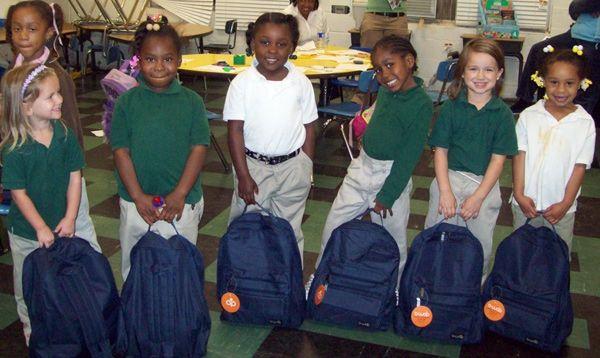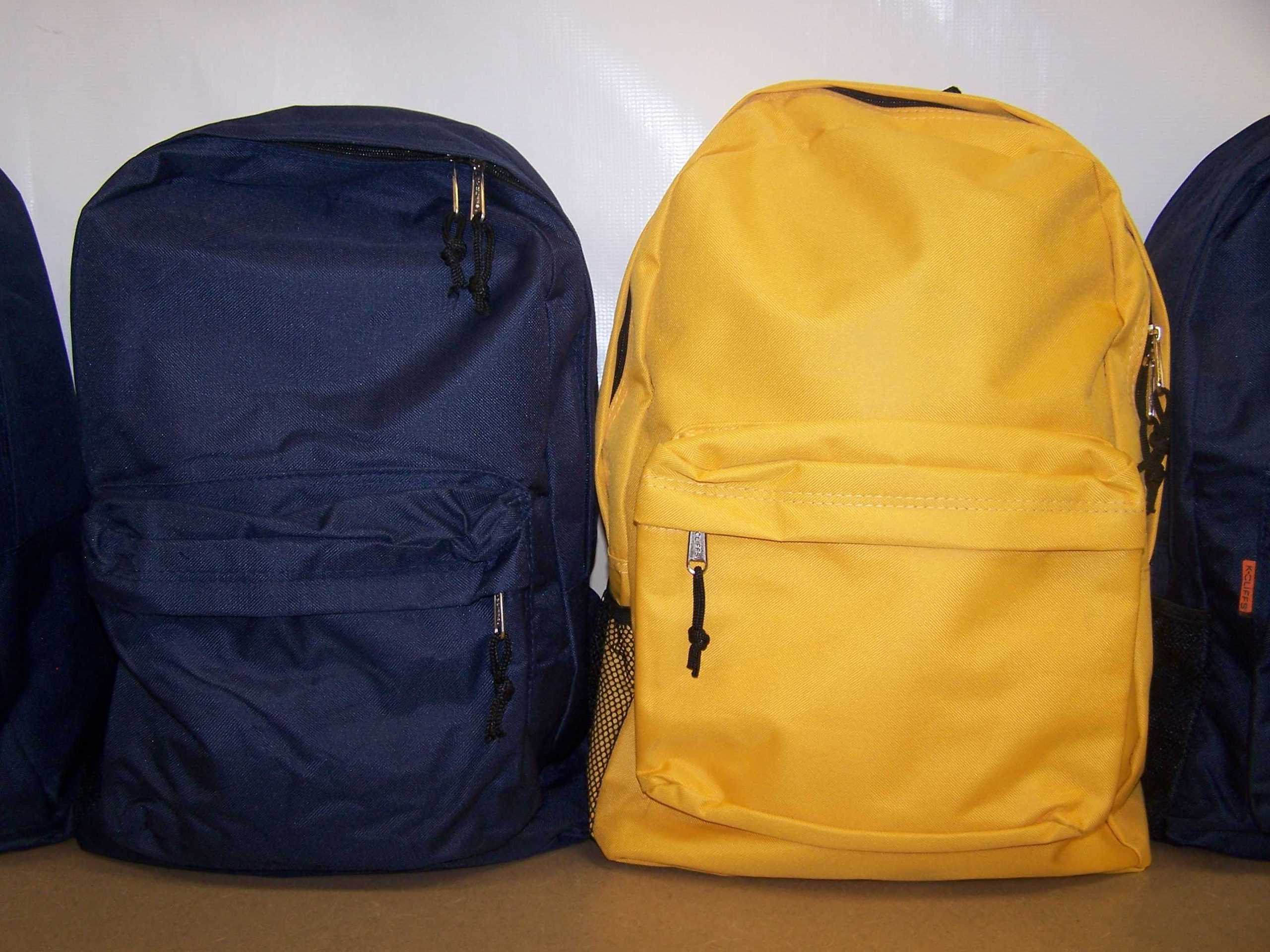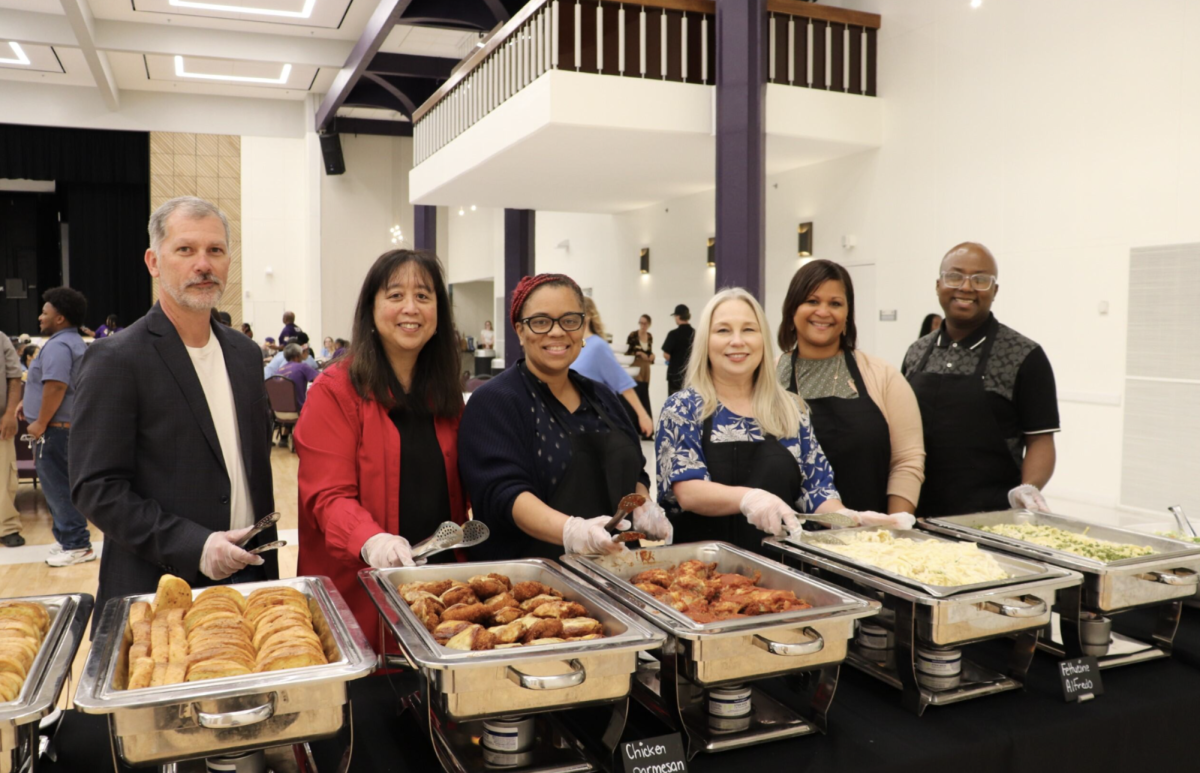For some students, backpacks usually hold the necessities for a school day: binders, books and notebooks. For the Baton Rouge Food Bank, it holds nutrition.
The BackPack Program began at an elementary school in Arkansas after a nurse noticed more children were coming to her complaining about headaches, stomach aches and dizziness. When she realized their symptoms were from hunger, she went to the Arkansas Rice Depot, the local food bank, and asked for food for the children to take home.
Because of the success of the program, Feeding America picked it up as a national program.
The Greater Baton Rouge Food Bank first started its BackPack Program in 2007 with one school.
“BackPack is a specialized program of food distribution specifically for children,” said Charlene Montelaro, vice president of development and philanthropy at the Greater Baton Rouge Food Bank.
In 2008, the Food Bank realized how serious of an issue hunger in schools was when the “Today Show” did a segment on the changing face of hunger.
Following this coverage, an NBC affiliate came to Baton Rouge to interview the CEO of the Food Bank because there were reports of children hoarding their lunch at school.
Since then, the Food Bank has expanded the program to serve eight schools in East Baton Rouge Parish.
The BackPack Program works as a supplement for children who receive benefits from the free and reduced lunch program. Montelaro said the company found it was the main source of nutrition for the children.
“When we did our last count, 81 percent of the children in the public school system in East Baton Rouge Parish qualified for the national school lunch program,” Montelaro said. “Now it’s approaching 100 percent.”
It focuses on students from pre-K through fifth grade, as the food bank has found this age group to be the most willing to participate compared with junior high or high school.
The children get the backpack at the beginning of the school year, which stays at the school during the week while the food is being packaged by volunteers at the food bank.
From there, the packaged food is delivered to the school, where a school nurse carries out the job of stocking the backpacks to send home with the children on Friday then they return with empty backpacks on Monday.
Each weekend, the children are sent home with one backpack, and on extended holidays, they’re sent home with two.
The food items are easily consumable, shelf-stable and can be eaten immediately. This is to ensure that children can prepare all of the items themselves, without the need of microwaving or cooking.
A survey of the teachers in the schools have reported improved attention, decreased absences and better overall behavior from the children involved.
“The mission of the Greater Baton Rouge Food Bank is to feed the hungry — it’s very simple,” Montelaro said.
The Food Bank has worked with Kitchens on the Geaux, a University organization devoted to spreading food and hunger awareness through service labor and providing students with opportunities to better Baton Rouge.
The most recent collaboration was last November, when the two programs combined to pack backpacks for National Hunger and Homelessness Awareness Week.
Junior business management student Kassidy Noto was one of the participants in this event.
“I think it is great that there are so many supplies available to fill multiple backpacks,” Noto said. “By students getting involved, they learn more about the needs of the community and how to leave an impact.”
You can reach Ashlyn Rollins on Twitter @ash_r96.
Greater Baton Rouge Food Bank focuses on backpack program
April 20, 2015
More to Discover












